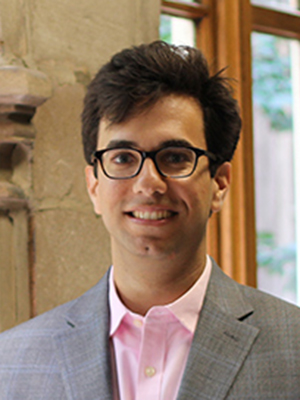Professor Sanga on Opening Up Access to Federal Court Records

Professor of Law Sarath Sanga ’14 joined Yale Law School in July 2023 and teaches courses in corporate law, contract law, arbitration, and law and economics. In addition to his J.D. from Yale Law School, Sanga holds a Ph.D. in economics from the University of California, Berkeley. His work has appeared in leading journals, including the Journal of Political Economy, the Journal of Law & Economics, and Science. He recently discussed his teaching and scholarship.
Q: As you return to Yale, what are you most looking forward to about teaching?
A: That's easy. The students.
Q: Tell us briefly about your work co-founding SCALES, which works to make federal court records free and accessible to the public, and what you hope to accomplish with this use of artificial intelligence.
A: The federal judiciary maintains an abominable policy of denying the public access to court records. The records are all online, but if you want to look up the details of a federal court case — details which are a matter of public record and are in the public domain — you'll have to first surrender your credit card details so that the federal judiciary can charge you. A single case might cost you $10, $20, or even $100 depending on the number of documents involved.

This policy is an affront to democracy, not to mention common sense. It costs almost nothing to maintain the records online, and the benefits of letting the people know what their government is doing are self-evident. No other branch of the federal government does this. Congress makes the Congressional Record, roll call votes, and every other online document free. The same goes for every federal agency. Only the judiciary puts up a paywall to block access, and the judiciary has resisted every attempt, both from Congress and in private litigation, to make the records free.
The upshot is that it is impossible to conduct any kind of systematic empirical analysis of the federal courts. An entire branch of government is shielded from scrutiny. One wonders whether this is in fact the purpose.
SCALES is an attempt to right this wrong. Our goal is to make court records free and accessible to the public. So far, we have acquired a small fraction of the records, and are using them to develop an online platform where people can query the records and generally make sense of them. This means developing AI-backed systems and using recent advances in large language models to sort through the millions of pages of records. We intend to launch a public version of our system later this year.
If you would like to help us gain access to federal court records, or otherwise are looking to get involved, please email me.
Q: How would you describe your research to students and alumni?
A: In business law, as in so many other legal fields, there is often a chasm between theory and practice. For example, the economic theories of contracting produce extremely complicated “optimally designed” deals, with all kinds of contingencies and complicated payment schemes. Yet in practice, one finds relatively simple transactions. Does this mean the theory is irrelevant? Maybe. I do not doubt that there are plenty of theories that are perhaps best left in the classroom.
But I also believe that the problem is often not one of relevance, but of translation. Even if a theory is “correct,” it is not always obvious just how each piece of the theory fits into the complex and messy world of reality. Throughout my work, I try to bridge that gap between theory and practice, to take abstract ideas from economics and statistics and apply them to the real world.
For example, in one project, I use employment agreements from S&P 500 executives to empirically demonstrate the theory of “strategic ambiguity,” which posits conditions under which contracts are deliberately incomplete. In another project (with Eric Talley), I apply economic theories of contract to demonstrate the impact of changes in corporate law doctrine, specifically, of changes in fiduciary duties in venture capital-backed companies. I have also applied economic models of peer effects to explain the history and empirical pattern of incorporation decisions. In another project (with Julian Nyarko), I show how computational models of machine translation can answer questions of legal interpretation.


